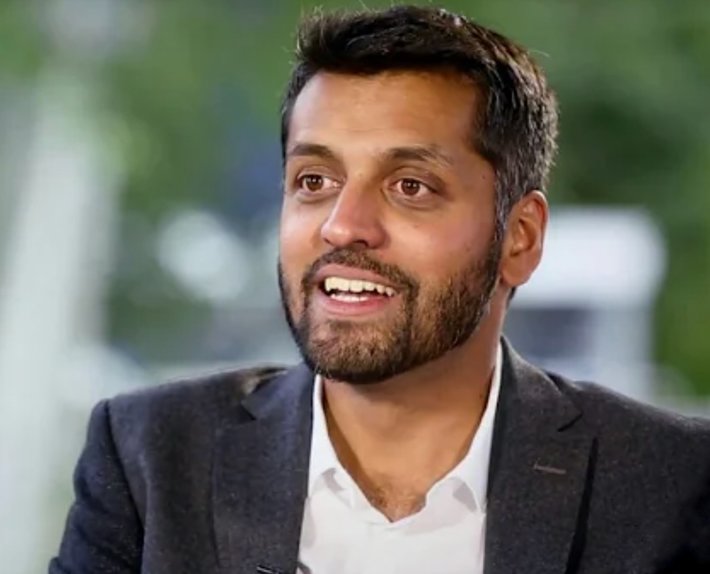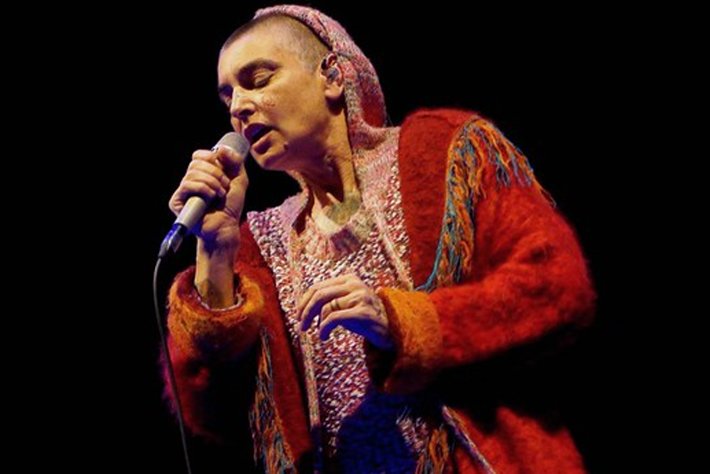As an American-born Muslim, Wajahat Ali receives Islamophobic hate mail almost daily, telling him to go back where he came from.

But go back where, exactly? He jokes: Fremont, California, where he grew up—a place he can no longer afford to live in? Or Pakistan—the country his parents emigrated from half a century ago?
As Ali writes in his recent memoir, Go Back to Where You Came From, the hate mail he gets is often brutal. He responds to it with humor—“both sublime and silly, sophomoric and sophisticated,” as he puts it—an audacious attempt to “communicate very real, hard truths” about being a minority in America.
Ali was an undergraduate student at the University of California, Berkeley, when the September 11, 2001, terrorist attacks occurred, suddenly turning Muslims like him into America’s top enemy.
“After 9/11, mention of Muslims and Islam in the media would often be accompanied by a low-angle close-up shot of an angry, scary, bearded, brown man yelling with his hand raised high, obscuring and dominating the women, who are all behind him,” Ali writes.
At the time, Ali was part of a comedy troupe at UC Berkeley, where he was “the only brown and Muslim dude,” he says. “My specific identities, which often excluded me from the American narrative, ended up being strengths I could draw on not only to entertain but also to educate.”
Following the 9/11 attacks, Ali and his fellow comedians at UC Berkeley agonized over whether they should disband their troupe. “Who was in the mood to laugh after a national tragedy?” Ali asks in his book. “It turns out everyone was, because they needed a release.”
A few weeks after the attacks, Ali played “Captain Islam,” a character in a show who was “an average dude by day and a superhero by night,” wearing a giant “I” on his chest and sporting a bath towel as a cape.
“Amid the backlash against Muslims, my troupe wanted to use the moment for comedy but also for healing,” Ali writes. “We had no idea if people thought it would be tacky or bad taste.”
As it happened, the Berkeley audience reacted to the show with applause that wasn’t just thunderous but was the night’s biggest. “A silly sketch, some humor, some storytelling—that’s what connected with a diverse audience in need of solace, comfort, and understanding,” Ali writes. “That and a brown dude with a giant ‘I’ for Islam on his chest.”
A New York Times contributing op-ed writer, public speaker and attorney who has more than 283,000 followers on Twitter, Ali has become something of an accidental spokesperson and post-9/11 ambassador for American Muslims.
In a sense, it is his calling. “I went to an all-boys Jesuit Catholic high school in the Bay Area, where I dominated the yearly religious studies classes to the point that Father Allender almost wept when reading out the highest grades in the class: Wajahat Ali, the Muslim, followed by Kalyan, the Hindu,” he writes. “I carpooled with Brian, a Jew, Gaurav, a Hindu, and Allen, a Christian son of Nigerian immigrants. My America was a United Colors of Benetton ad.”
Asked in a recent interview with Religion News Service why he finds the trope of the “moderate Muslim” insulting, Ali responded with a mixture of his trademark humor and logic:
“The assumption is that I’m not moderate,” he said. “By default, we’re these savage beasts from the Middle East who are about to put a hijab on your wife and implement Shariah. It’s a double standard that is not asked of any other religious community: We accept you only if you fulfill our version of being a sanitized, civilized Muslim.”
Asked in the same interview if humor is “the best way to dismantle anti-Muslim hate,” Ali said, “Everyone has different skills. For me, it’s using humor and blunt truths to make people more receptive to otherwise hostile ideas.”
_______________
From its beginnings, the Church of Scientology has recognized that freedom of religion is a fundamental human right. In a world where conflicts are often traceable to intolerance of others’ religious beliefs and practices, the Church has, for more than 50 years, made the preservation of religious liberty an overriding concern.
The Church publishes this blog to help create a better understanding of the freedom of religion and belief and provide news on religious freedom and issues affecting this freedom around the world.
The Founder of the Scientology religion is L. Ron Hubbard and Mr. David Miscavige is the religion’s ecclesiastical leader.
For more information visit the Scientology website or Scientology Network.


